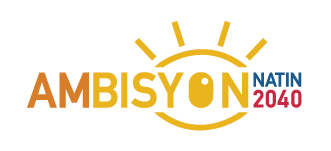Florangel Rosario Braid (Manila Bulletin)
In announcing completion of the Philippine Development Plan (2017-2022), NEDA Secretary Ernesto Pernia noted its two important attributes – “malasakit” and “pagbabago.” We can understand the choices of these two values and the first especially, because this aspiration has always been in the consciousness of both our leaders and the citizens. Change is here, and this is manifested in the structural changes we want to see in the way we perform our daily responsibilities, in our institutions – no more queues, reducing traffic, lessening corruption, and changing mindsets in our work habits – no more “paki,” “bahala na,” “pwede na,” punctuality, and the many acts of citizenship. “Malasakit” has always been a Filipino trait as long as we can remember. We are by nature hospitable and sympathetic to the plight of others. But let me state that this is not manifested in all situations and towards all the people we encounter.
“Malasakit” or being compassionate, in our Filipino social context, is a value manifested in selected situations such as reaching out to others during times of disaster, opening our doors during special occasions such as fiestas. But this has not been sustained in all occasions. Is it because of the economic condition of the majority of our population? Or is it because of our “clannish” culture which prevents us from extending this value outside our immediate or extended family. Instead, malasakit has remained primarily as a familial rather than a social value. Our failure to establish a community or nation is perhaps a consequence of our inability to be truly “malasakit” across the various social divides of social class, religion, or culture. This could explain the difficulty in getting the various groups in our society to act in solidarity or to rally towards a consensus in times of crisis.
While mulling about other companion values to accompany “malasakit” in the vision to achieve pagbabago, I thought of a value that has been manifested by the average Filipino but which has not been strengthened to become a national value. This is the value of being “steadfast,” “sturdy,” or “resolute.” The value of “tiaga” has been manifested during times of major crisis such as disasters, or even minor ones – heavy traffic or having to wait in long queues in public service institutions, where the Filipino has been found to have exercised what foreign observers describe as incredible patience. This value should help us survive climate change and future uncertainties.
These values will not replace current ideologies of our political parties — liberalism, social democracy, Marxism — as they are common values that would guide the implementation of national policies and plans. Indonesia’s development plan is guided by its national ideology, Pancasila, a philosophy based on moral education and national identity.
I welcome this move to inculcate these attributes in the way we implement our national policies and programs. This set of values could provide the language and symbols for future social direction and action. They could provide the basis for developing criteria in evaluating performance of both national and local government development plans. We remember the experience during the Marcos years when the New Society that was established mandated a “revolution from the top” that was accompanied with a change in our old values. But the Filipino was unable to internalize and inculcate those values. The learning was that any value change must be consistent with value and behavior of those who attempt to effect the change. And when our people saw that the leaders were not behaving according to the values mandated by the New Society, they began to resist the change. Consistency in word and behavior must accompany any form of change.
